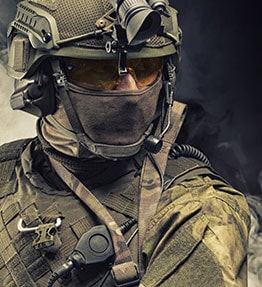Is it legal to buy body armor?

Some countries have specific guidelines about how body armor can be bought and sold, and it is your responsibility to be aware of any restrictions in place where you live.
Some restrictions in major areas include:
- In Australia, it is illegal to possess body armor without authorization in certain territories (South Australia, Victoria, Northern Territory, ACT, Queensland, and New South Wales).
- In certain Canadian provinces (Alberta, British Columbia, Manitoba, and Nova Scotia) a license is required to possess body armor, though there are no such restrictions in the rest of the country.
- In the European Union, ballistic protection that is considered ‘for main military usage’ is restricted to civilians.
- In the United Kingdom, there are currently no legal restrictions on the purchase and ownership of body armor.
- In the United States it is legal to purchase and possess body armor, except for a few states:
- In Connecticut and New York, body armor can only be purchased in person, and cannot be purchased online, over the phone, or by mail (read more on New York's recent changes in purchasing body armour here).
- In Kentucky, committing a crime while wearing or even owning body armor is a crime in and of itself
- In Louisiana, it is illegal to wear body armor on school property or campus.
Even in regions, were wearing body armor is legal, overt (visible, on top of clothing) body armor is likely to attract attention from both the general public and law enforcement officials. Police officers may want to confirm why you are wearing a vest as it is unusual for civilians to wear vests out in public places. Additionally, it may cause other people to become worried and frightened as they might think there is an imminent danger or that you are a threat. In such cases, it is important to remain calm and explain your reasons for wearing body armor. As long as you are abiding by the law, police officers are likely to be understanding.
A way to avoid these situations is to opt for a covert vest, which is worn underneath the clothing. It still provides you with safety against ballistic, stab, or spike attacks, but remains out of sight.
Remember, the restrictions listed above are not an exhaustive list of all body armor regulations and laws. It is your responsibility to check with local and national standards and rules before you purchase body armor. If you are unsure about any such laws, it is imperative that you conduct research before purchasing to avoid breaking the law.
 US
US UK
UK SE
SE NL
NL FR
FR ES
ES DE
DE







